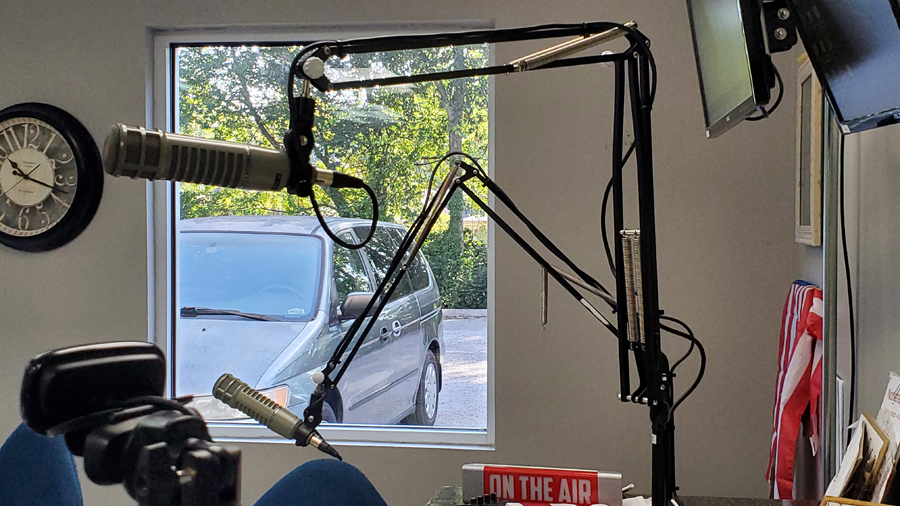
Disputed minivan — with registration revoked — waits outside radio studio as I fight maladministration and lawlessness by the TN department of revenue. (Photo David Tulis)
CHATTANOOGA, Tenn., Tuesday, Sept. 20, 2023 – Should I depose the revenue commissioner in my fraud case, or should I withdraw my notice of deposition, as requested for a third time?
By David Tulis / NoogaRadio Network
I have standing to sue for reform. I have put into the combat my year 2000 Honda Odyssey minivan with 320,600 miles on the odometer, my first car as a young family man, a gift from my mother, when our oldest child, a girl, was a mere 7.
My petition is lodged in Cmsr. David Gerregano’s department of revenue, and his attorney, Camille Cline, effectively is pleading that I yank my demand to sit down with Mr. Gerreguano for between four and eight hours for a chat about T.C.A. § 55, chapter 12, the Tennessee financial responsibility act of 1977, the lively prose of which has occupied my attention since July when the komissar began sending me notice about revocation of my van registration.

David Gerregano, Tennessee revenue commissioner
“I am writing this morning to ask whether you have had the opportunity to consider the Department’s request,” says Mrs. Cline, “that you withdraw the notice of deposition for Department of Revenue Commissioner David Gerregano.
As we discussed via phone last week, the Department believes the proposed deposition of our Commissioner is both unnecessary and inappropriate, as the Commissioner does not have any personal knowledge of the facts surrounding the suspension of your motor vehicle registration, or the day to day operations of our Vehicle Services division’s insurance verification unit.
She warns Cmsr. Gerregano will “evaluate whether [the department] will need to file a formal objection to the notice.” This remark is pretty stern, and I am concerned about it.
The right to depose parties in a lawsuit inhere even if the case is in the administrative realm, in the bowels of a state agency such as department of revenue. I have right to interrogate the defendant (called a respondent in an administrative claim) in agency as much as if I were in circuit court, or chancery, or U.S. district court.
Mrs. Cline offers alternatives to my asking the commissioner about the origins of his prosecutorial machinery that operates outside of, apart from, the necessary legal infrastructure called state law. Such machinery might be considered akin to a tumor or cancerous lump, taking a life of its own, ingeniously generating its own purpose, drawing its own strength, and generating its own fruit for the body.
Urges Christopher Sapp, NoogaRadio midstate bureau chief:
Ask for discovery of the authorized plans showing who approved it and any memos or records concerning the implementation of the program. It should contain the consultation with the commissioner of safety also.
You now have proof of the persons responsible for a possible lawsuit and both commissioners added as overall responsibility. It’s very likely that the commissioner of revenue isn’t going to claim complete ignorance, thus showing valid reason for his deposition.
Depositions are a wildcard. Questions are leveled on the fly and opposing counsel does not have the ability to craft neatly packaged answers in support of the department’s position.
David, you should welcome and treat this opportunity like a coroner or medical examiner conducting a forensic autopsy on a murder victim. No stone gets unturned, every theory of causality is explored, no party is beyond suspicion for the murder. Follow the evidence wherever it leads to expose the truth. This is investigative journalism at its best.
Mr. Sapp says he would “put the commissioner on the hot-seat and expose him to the same expense and inconvenience that thousands of Tennesseans face by every day by having to go to court as a result of the way this policy is currently implemented by the department.”
On Wednesday I will send my reply to Mrs. Cline’s seven-page objection to my five-page motion to recuse hearing officer Brad Buchanan, a longtime state tax attorney and head of the department’s internal court system.

